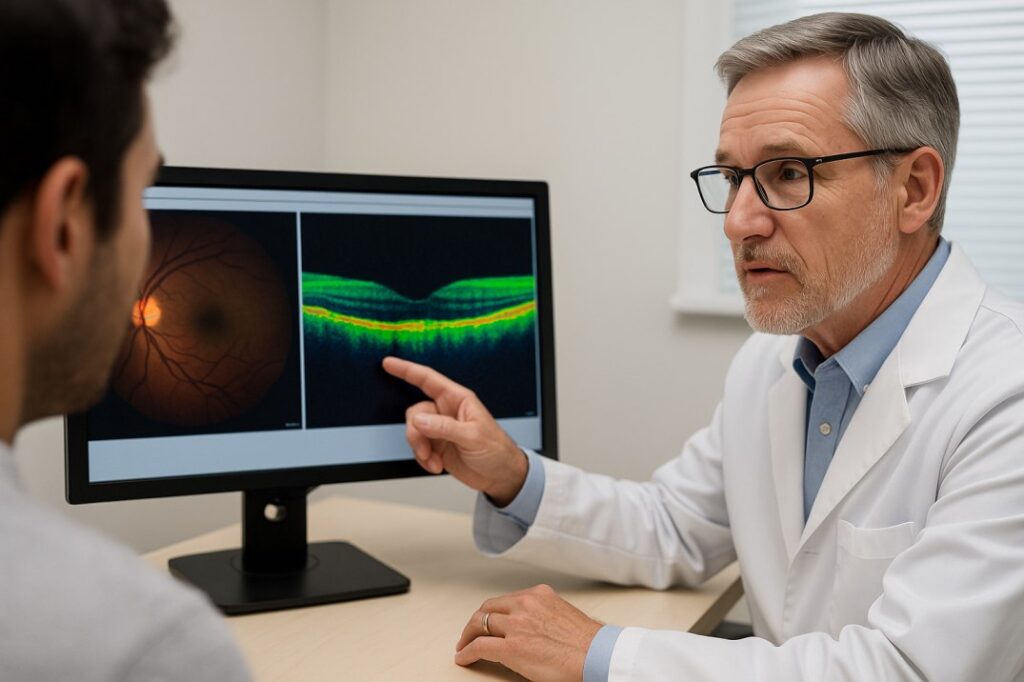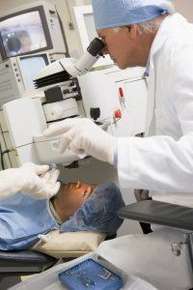Diabetic Eye Care in Seattle | Cannon EyeCare
Diabetes triggers chronically high blood sugar (glucose), which can damage multiple organs, including your eyes. In Seattle, diabetic retinopathy ranks among the most frequent diabetes-related eye diseases and remains a top cause of adult blindness nationwide.
What Is Diabetic Retinopathy?
This disease targets the retina, the light-sensitive tissue lining your eye’s rear wall. When functioning properly, your retina captures light and transmits images to your brain.
Two Primary Types:
-
Nonproliferative Retinopathy (NPDR)
-
Most common stage
-
Eye capillaries swell and form pouches
-
Progressively restricts blood flow to the retina
-
-
Proliferative Retinopathy (PDR)
-
Oxygen-starved retinas grow fragile new blood vessels
-
These vessels leak blood, causing severe vision loss or blindness
-
Macular Edema Complication:
Fluid leakage into the macula (central retina) causes swelling and blurring of sharp vision—a critical concern for Seattle diabetics.
Glaucoma Risk in Seattle Diabetics
Diabetes doubles your glaucoma risk, escalating with age and diabetes duration. This disease elevates intraocular pressure (IOP), often due to slowed fluid drainage. High IOP compresses blood vessels supplying the optic nerve and retina, causing irreversible vision damage if untreated.
Cataracts & Diabetes: Seattle Treatment Options
Diabetics face earlier and faster-developing cataracts—clouding the eye’s lens and blocking light from the retina. Early stages may only require prescription lenses. Advanced cataracts often need surgery at a Seattle clinic like Cannon EyeCare, where we replace clouded lenses with intraocular implants (IOLs) to restore clarity.
What Are Biomarkers?
Biomarkers are measurable biological signals in your blood, urine, or advanced eye scans. At Seattle’s Cannon EyeCare, we use these critical indicators to predict diabetic eye disease progression, confirm diagnoses, and personalize your treatment monitoring.
3 Key Biomarker Types for Diabetic Eyes
-
Blood Biomarkers
-
HbA1c: Tracks 3-month blood sugar averages
-
Serum Urea: Elevated levels signal advanced retinopathy risk
-
-
Imaging Biomarkers (via Seattle Eye Scans)
-
OCT Scans: Reveal retinal swelling/thickness
-
Fluorescein Angiography: Maps leaky/blocked vessels
-
Epiretinal Membranes (ERM): Indicate disease progression
-
-
Molecular Markers (Emerging Research)
-
Inflammatory proteins
-
Genetic markers (future personalization potential)
-
Why Biomarkers Transform Seattle Diabetic Eye Care
-
Early Alerts: Detect retina changes before vision loss occurs
-
Personalized Plans: Tailor treatments to your unique risk profile
-
Progress Tracking: Objectively measure treatment effectiveness
For diabetics in Seattle, this means earlier interventions at clinics like Cannon EyeCare—potentially saving your sight.
The Future: Precision Eye Care in Seattle
Cannon EyeCare stays at the forefront of:
- Precision Medicine: Treatments customized to your biomarker profile
- Cutting-Edge Research: New biomarkers to predict rapid vision loss risks
- Preventive Strategies: Proactive protection for Seattle diabetics
Beyond Injections & Lasers: Seattle’s Next-Gen Solutions
Though injections and laser therapy help many, 1 in 3 diabetic retinopathy patients see limited results. At Cannon EyeCare, we track breakthrough treatments for Seattle residents needing advanced options.
Stem Cell Therapy: Repairing Retinas
How It Works
Stem cells can transform into retinal cells, potentially replacing damaged blood vessels or neurons in diabetic eyes.
Current Status for Seattle Patients
-
Promising early animal/human trials
-
Not yet widely available
-
Cannon EyeCare monitors FDA approvals for Seattle access
Gene Therapy: Targeting Root Causes
The Science
This approach corrects faulty genes driving diabetic eye damage through:
-
Blocking abnormal blood vessel growth
-
Reducing retinal inflammation
-
Protecting optic nerve cells
Seattle’s Future Outlook
Personalized gene therapies at clinics like Cannon EyeCare may soon prevent—or even reverse—vision loss.
The Next Decade: Seattle’s Diabetic Eye Breakthroughs
-
Active Clinical Trials: Testing safety/efficacy nationwide
-
Genetic & Cell Advances: Potential to transform care by 2035
-
Seattle’s Role: Cutting-edge facilities like UW Medicine partner with local clinics
Your Path to Next-Gen Care in Seattle
-
New Hope: Options when standard treatments fail
-
Clinical Trial Access: Ask Cannon EyeCare about Seattle-based eligibility
-
Action Step: “Schedule a consultation to discuss these emerging therapies.”
FAQs
-
Diabetic eye diseases are complications from diabetes that damage blood vessels in the retina, causing blurry vision, floaters, or even blindness if untreated.




